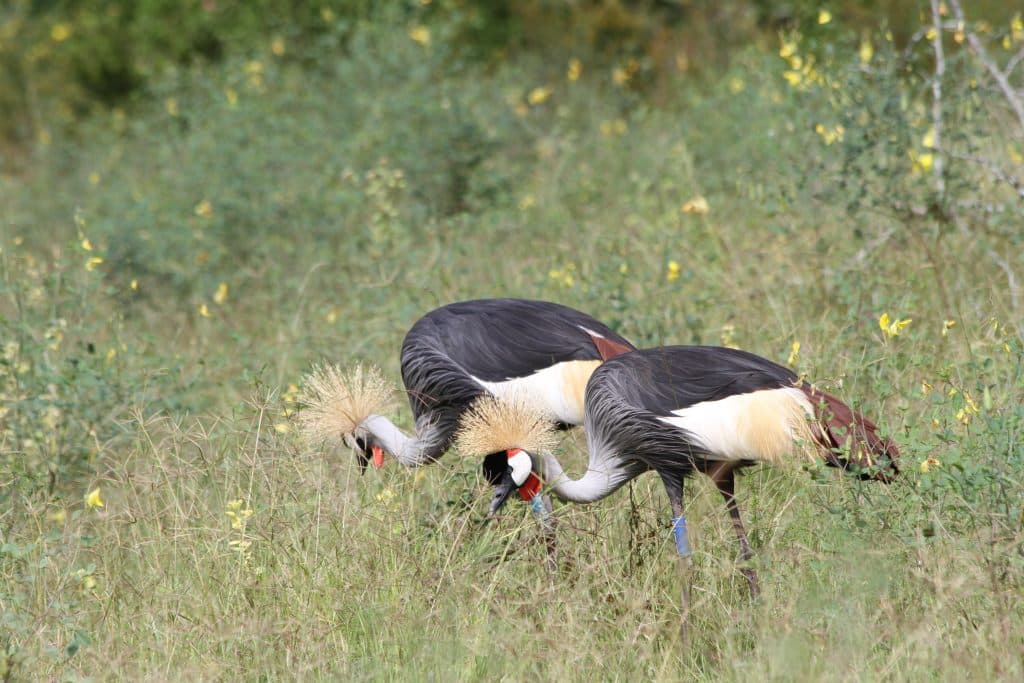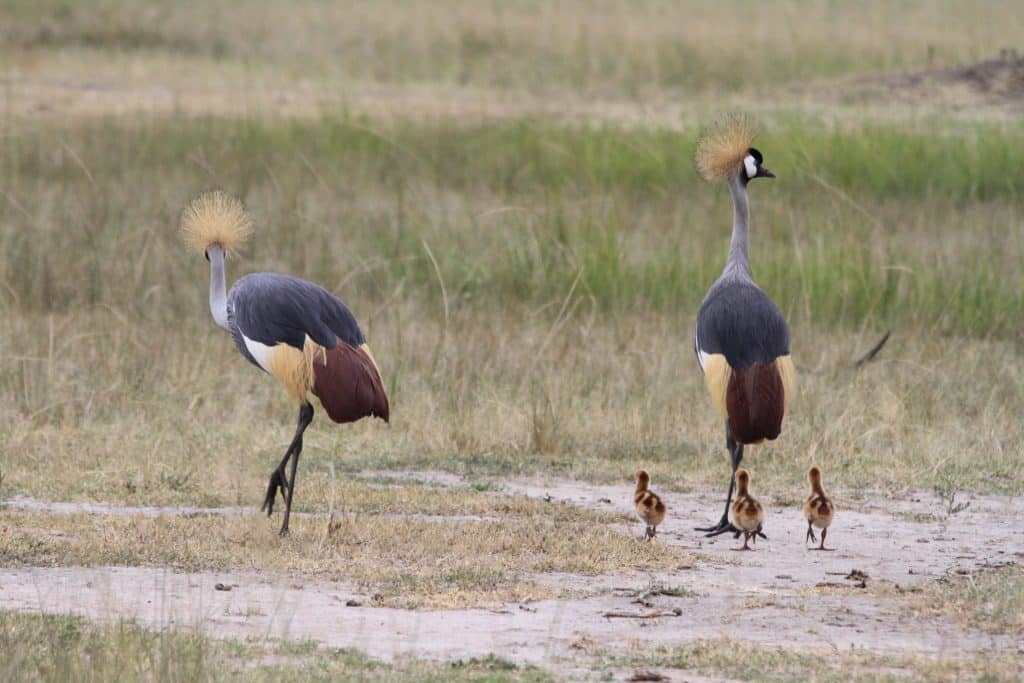When Dr. Olivier Nsengimana first encountered Crane 039, he was a decoration in a private garden. He repeatedly jumped, flapping his clipped wings and trying to fly. Rwanda Wildlife Conservation Association (RWCA) has rescued many grey crowned cranes from captivity, but none as animated as 039. Olivier believed 039 was trying to tell him something. His attempts to reclaim freedom with tattered wings continued even after Olivier took him to RWCA’s rehabilitation facility in Akagera National Park. But 039 needed more than sanctuary; he yearned for the sky, eventually taking flight again even without fully regrown flight feathers. Olivier soon learned that 039’s motivation wasn’t just freedom—he had fallen in love. Her name was 211.
The pair bonded in Akagera, but 039’s desire to fly often pulled him away from 211. RWCA tracked 039 traveling as far as Tanzania, teaching Olivier that RWCA must collaborate with groups in neighboring countries to ensure cranes are protected across borders. Watching 039 blossom from former prisoner to international explorer stirred Olivier and helped improve RWCA’s monitoring across crane range. Eventually, 211 joined 039 on these journeys.
But the couple had more to teach Olivier. They often returned to Akagera, most recently to give birth to three downy chicks who chase them throughout Akagera’s wetlands, confirming that cranes prefer breeding in the safety of protected areas. RWCA now protects many of Rwanda’s wetlands, giving cranes safe places to thrive, with impressive results—this year, RWCA recorded over 1,200 cranes in Rwanda, their highest count ever and more than double their original 2017 count. By learning from cranes like 039, RWCA continues to improve their programs and promote crane recovery.



